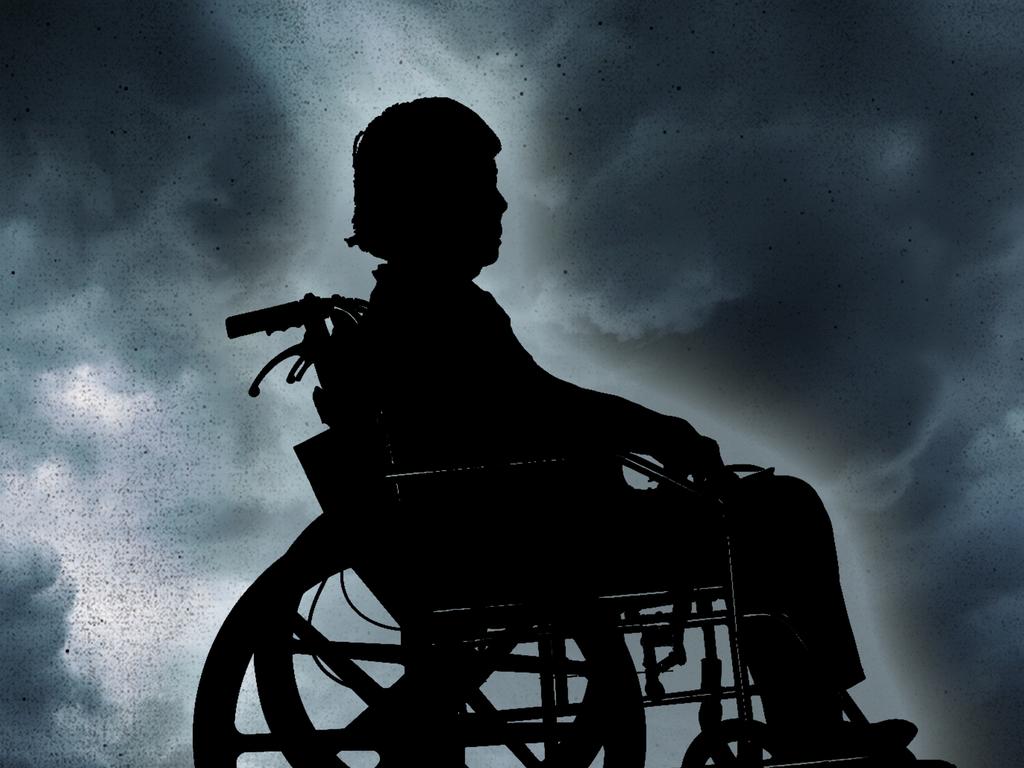Claims NDIS participants turning to hospitals in wake of funding cuts
Dietitians and physiotherapists have accused the disability insurance agency of wrongly knocking back many of their clients’ supports, leading to an increase in people presenting at hospitals.

Dietitians and physiotherapists are accusing the National Disability Insurance Agency of wrongly knocking back many of their clients’ supports, claiming they are now seeing an increase in people with disability presenting at hospital as a consequence of having “nowhere else to go”.
The alarm was raised in the wake of Health Minister Mark Butler last month appearing to distance himself from the original start date for the phased rollout of “foundational supports” – which refer to a separate set of health and education services for those who are no longer eligible for the NDIS – from July 1.
Labor has sought to rein in the growth of the NDIS to 8 per cent a year, down from highs of about 15 per cent, but has hit back at suggestions of eligibility changes being implemented “by stealth” after revelations thousands of “reassessment letters” were being sent to NDIS participants each month, with many being taken off the scheme as a result.
Dietitians Australia chief executive Magriet Raxworthy said her organisation’s members were reporting a concerning number of clients having nutrition supports – which include care around feeding tubes – knocked back with little explanation.
“The way the rollout of the new therapy supports list has been delivered to date has been inconsistent, chaotic and in some cases has put participants’ lives at significant risk,” she said.
“Many are turning up at a hospital for support as they have nowhere else to go in the community and are left without clarity or direction by the NDIA.
“The reasons include tube feeding-related complications, dehydration, malnutrition and, in extreme cases, swallowing difficulties and choking.”
Physiotherapists also confirmed they had been seeing a “significant trend” of clients having their funding cut, which had led to “avoidable complications” that led to some going to hospital.
Australian Physiotherapy Association director Melissa McConaghy said the inexplicable cuts to some packages were “escalating health risks” of some NDIS participants.

“We see with some of the individuals with quite significant therapy and funding budget cuts that they’re ending up in hospital with pressure sores, falls, chest infections, they’re malnourished … and there’s huge amounts of distress that go with this additional harm,” she said.
“I think we’ve seen it increase and escalate, probably over the past 12 months. There has been, I guess, through the whole period of NDIS, the odd occasion where this has happened, but we’ve never seen it as consistently as what we are seeing at the moment.”
Reforms to the NDIS that gave the agency greater power to intervene in people’s packages and set out clearly what NDIS funding could be spent on were passed last August by former NDIS minister Bill Shorten.
However, changes to the scheme were predicated on the plan to create a new system of services – or foundational supports – for those no longer on the NDIS, through a 50/50 funding arrangement with states and territories.
Agreement on the design and cost of those supports is yet to be finalised, as is the associated deal on long-term public hospital funding, but Mr Butler has expressed optimism that his new role as Minister for Health and the NDIS will give premiers one point of contact for the ongoing negotiations on both agreements and lead to real progress as a result.
Opposition health and NDIS spokeswoman Anne Ruston said Labor had to “come clean and provide some much-needed certainty to the sector” and Australians living with disability.
“We are very concerned by the lack of information out there at the moment, which could have serious impacts on the lives of vulnerable Australians,” she said.
“It is unacceptable to be in a situation where recipients are potentially being transferred off the NDIS and onto the new Foundational Supports, but there is no information about this program or when it will be implemented.”
An NDIA spokeswoman said all NDIS funded supports “must meet the NDIS funding criteria”.
“Nutrition supports are one type of disability-related health support we may fund, if it is related to the functional impact of a participant’s disability,” she said.
“The NDIS forms one part of the disability ecosystem, supporting Australians and their families to ensure those living with disability can lead a fulfilling life. The Scheme is designed to complement, not replace, other government services like the health system. This is to ensure people can receive appropriate supports delivered by trained, specialised health professionals when required.”
The spokeswoman said the government released “definitions” of NDIS supports to make clearer what could be claimed with plan funding, with nutrition support included within the list.







To join the conversation, please log in. Don't have an account? Register
Join the conversation, you are commenting as Logout